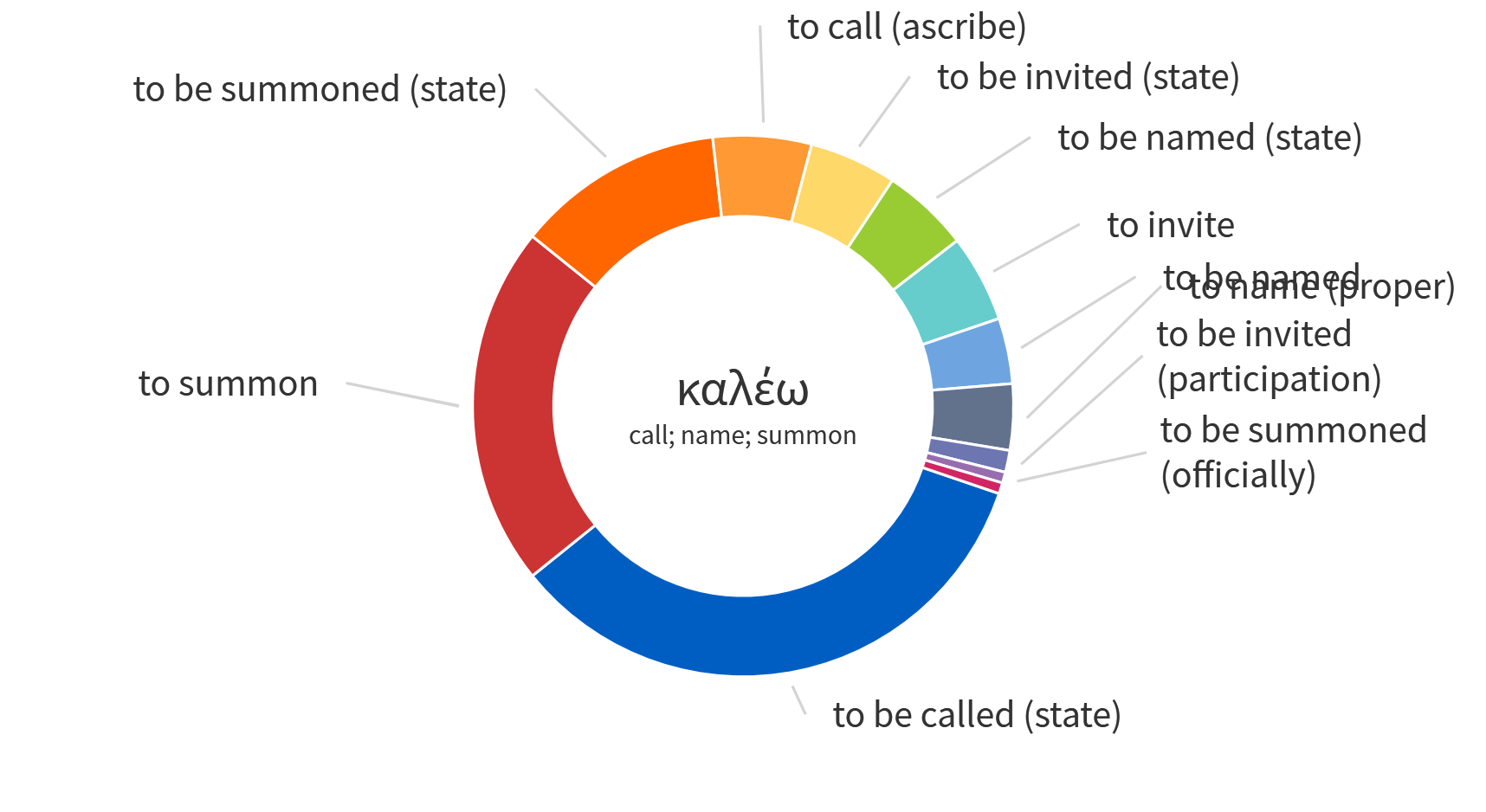BDAG notes that the verb καλέω (kaleó) in 1 Cor 7 means:
#4 From the meanings to "summon" and "invite" there develops the extended sense choose for receipt of a special benefit or
experience, call, ... in the usage of the NT, as well as that of
the LXX, of the choice of persons for salvation: God (much more rarely
Christ) calls 1 Thess 2:12, 1 Peter 2:9, 5:10, 1 Tim 6:12, 1 Cor 1:9,
Gal 1:15, 2 Thess 2:14, Col 1;12, Rom 8:30, 9:24, 1 Cor 7:17-24, Eph
1:11, 2 Tim 1:9, etc.
All these uses of the verb kaleó as God's invitation to accept salvation is part of the great doctrine of God's election - that is, salvation is God's initiative:
- Rom 5:6, 8 - For at just the right time, while we were still powerless, Christ died for the ungodly. ... But God proves His love for us in this: While we were still sinners, Christ died for us.
- Phil 2:13 - For it is God who works in you to will and to act on behalf of His good purpose.
- John 6:44 - “No one can come to Me unless the Father who sent Me draws him, and I will raise him up at the last day.
- Rom 2:4 - Or do you disregard the riches of His kindness, tolerance, and patience, not realizing that God’s kindness leads you to repentance?
- Eph 2:5 [Christ] made us alive with Christ even when we were dead in our trespasses. It is by grace you have been saved!
Peter issues this warning:
- 2 Peter 1:10, “make your calling and election sure”. This clearly allows for the possibility of losing one’s election. See also 2 Peter 2:21, 3:17.
Thus, God calls all people to salvation through faith in His Son Jesus. We see this played out many times in OT stories of people like Noah, Abraham, the messages of the prophets to call people to serve God, etc.
Further, not only does God call people to salvation, but also calls us to fulfill specific roles in God's work of reaching others (Matt 28:19) by providing abilities (spiritual gifts, 1 Cor 12, etc) and vocations to accomplish that work to which we are all called.
- 1 Cor 7:17 - Regardless, each one should lead the life that the Lord has assigned to him and to which God has called him.
APPENDIX - God call to salvation is to all people
- John 1:29, “Behold the Lamb of God who takes away the sin of the world.”
- John 3:16, “God so loved the world that He gave …”
- John 12:32, “I [Jesus] … will draw all people to myself.”
- John 12:47, “… for I did not come to judge the world but to save the world.”
- Acts 17:30, “God … commands all people everywhere to repent.”
- Rom 3:23, 24, “… for all have sinned … and all are freely forgiven...”
- Rom 5:8, 10, “… while we were still sinners, Christ died for us. … if, while were God’s enemies, we were reconciled to him by the death of His Son, …”
- Rom 5:15, “But the free gift is not like the offense. For if by the one man’s [Adam’s] offense many died, much more the grace of God and the gift by the grace of the one Man, Jesus Christ, abounded to the many.” [Note the same word, “many” applies to all people.]
- Rom 5:18, “Therefore, as through one man’s offense judgment came to all people, resulting in condemnation, even so through one Man’s righteous act the free gift came to all people, resulting in justification of life.”
- Rom 11:32, “For God has imprisoned everyone in disobedience so that He may show mercy to all.”
- 2 Cor 5:14, “…we are convinced that one died for all, and therefore all died.”
- 2 Cor 5:18, 19, “…God was reconciling the world to Himself in Christ …”
- 1 Tim 2:3, 4, “For this is good and acceptable in the sight of God our Saviour, who desires all men to be saved and to come to the knowledge of the truth.”
- 1 Tim 2:6, “[Jesus Christ] gave Himself as a ransom for all people.”
- Titus 2:11, “For the grace of God appeared bringing salvation to all people.”
- Heb 2:9, “But we see Jesus, who was made a little lower than the angels, now crowned with glory and honour because he suffered death, so that by the grace of God he might taste death for everyone.”
- 2 Peter 3:9, “The Lord is not slow in keeping his promise, as some understand slowness. He is patient with you, not wanting anyone to perish, but everyone to come to repentance.”
- 1 John 2:2, “He Himself [Jesus] is the propitiation for our sins, and not for ours [Christians to whom John writes] only but also for the whole world.”
- Isa 53:6, “We all like sheep have gone astray … and the LORD has laid on him the iniquity of us all.”
The Bible frequently makes this same point of wanting to save all people by emphasising that God does not show favouritism but treats all people impartially (Duet 10:17-19, 2 Chron 19:7, Eze 18:25, Mk 12:14, Acts 10:34 Rom 2:10-11; Eph 6:9, 1 Pet 1:17).
Thus, God saved (“elected”) all people by extending His Grace to everyone, even before they sinned! Further, God did this without any input from us, nor request from us, nor consultation with sinners (Eph 2:5). Unfortunately, many will reject this wonderful, free offer.
